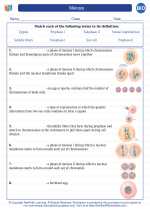Nutrient Cycling
Nutrient cycling is the movement and exchange of organic and inorganic matter back into the production of living matter. It involves the processes of nutrient uptake, storage, utilization, and release by organisms, as well as the physical and chemical transformations of nutrients in the environment. Nutrient cycling is essential for maintaining the balance of nutrients in ecosystems and the sustainability of life on Earth.
Key Nutrients
The main nutrients involved in nutrient cycling include carbon, nitrogen, phosphorus, and sulfur. These nutrients are essential for the growth and survival of living organisms, and their cycling is crucial for maintaining the health and productivity of ecosystems.
Processes of Nutrient Cycling
Nutrient cycling involves several key processes:
- Uptake: Nutrients are absorbed by plants from the soil or water through their roots. Microorganisms also play a vital role in nutrient uptake and transformation.
- Storage and Utilization: Once absorbed, nutrients are used by plants for growth and metabolism. They may also be consumed by herbivores and passed along the food chain.
- Release: When organisms die or excrete waste, nutrients are returned to the environment. Decomposers break down organic matter, releasing nutrients back into the soil or water.
- Transformation: Nutrients undergo chemical and physical transformations in the environment. For example, nitrogen can be converted between different chemical forms through processes like nitrogen fixation and denitrification.
Importance of Nutrient Cycling
Nutrient cycling is vital for sustaining life on Earth for several reasons:
- Energy Flow: Nutrient cycling is closely linked to the flow of energy through ecosystems. Without efficient cycling, the availability of nutrients for living organisms would be limited.
- Ecological Balance: Nutrient cycling helps maintain the balance of nutrients in different parts of the ecosystem, preventing nutrient imbalances that could lead to ecological disruptions.
- Soil Fertility: Nutrient cycling contributes to the fertility of soils, which is essential for the growth of plants and the productivity of agricultural systems.
- Climate Regulation: Nutrient cycling plays a role in regulating the levels of greenhouse gases in the atmosphere, affecting global climate patterns.
Human Impacts on Nutrient Cycling
Human activities, such as agriculture, deforestation, and industrialization, can significantly impact nutrient cycling. These impacts can lead to nutrient imbalances, pollution, and loss of biodiversity, affecting the health of ecosystems and human well-being.
Study Guide
To understand nutrient cycling, it is essential to grasp the following concepts:
- The role of different nutrients in living organisms.
- The processes of uptake, storage, utilization, and release of nutrients by organisms.
- The interactions between organisms and the environment in nutrient cycling.
- The human impacts on nutrient cycling and strategies for sustainable nutrient management.
◂Biology Worksheets and Study Guides High School. Meiosis
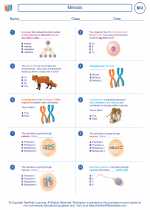
 Worksheet/Answer key
Worksheet/Answer key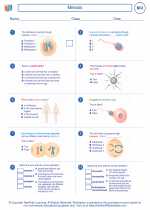
 Worksheet/Answer key
Worksheet/Answer key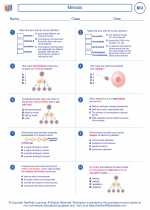
 Vocabulary/Answer key
Vocabulary/Answer key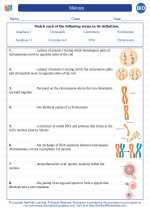
 Vocabulary/Answer key
Vocabulary/Answer key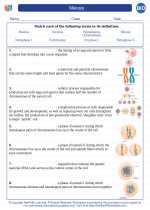
 Vocabulary/Answer key
Vocabulary/Answer key